CLAS 301B
April 3, 2025
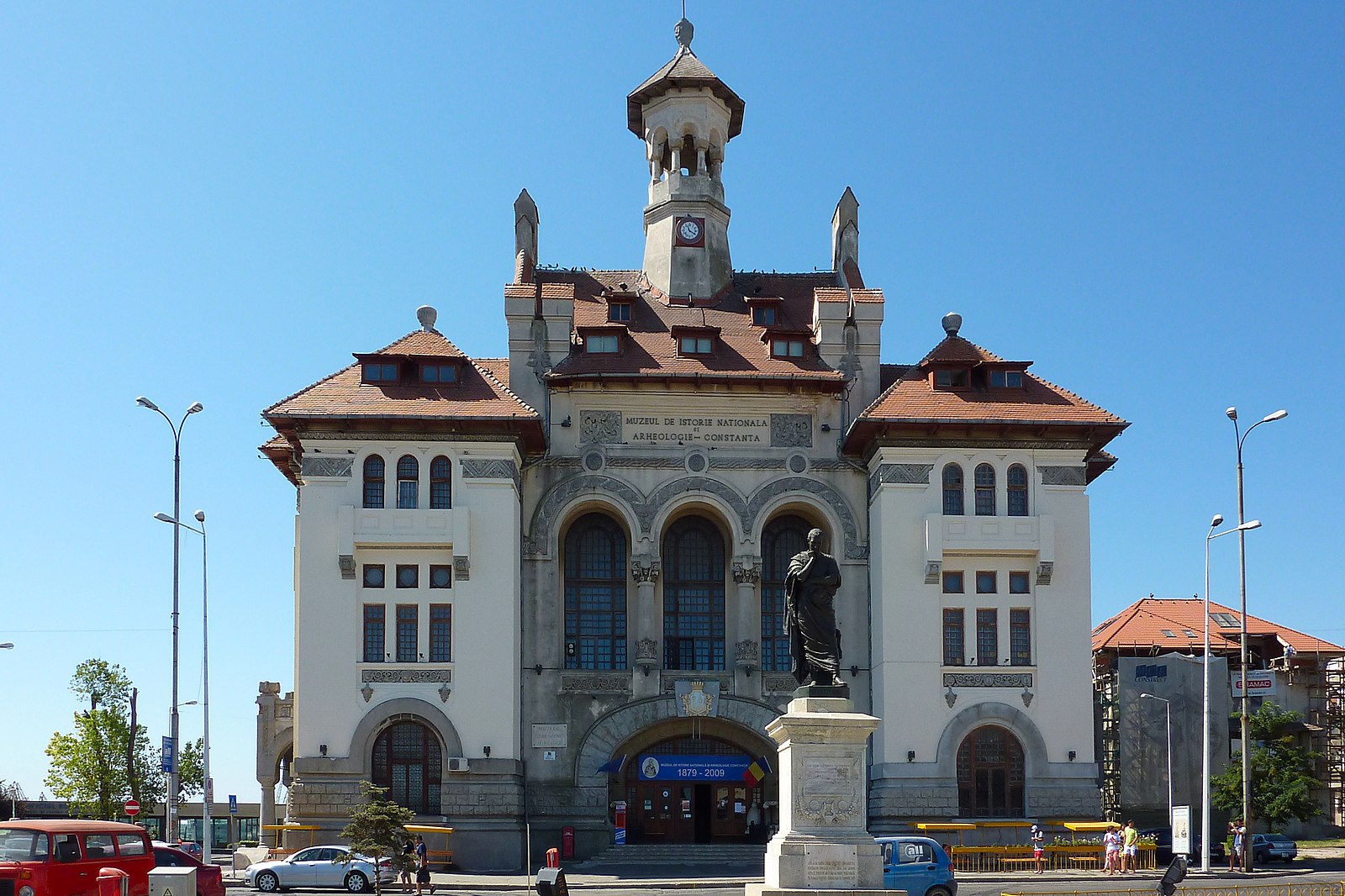
Ovid's statue (National History Museum,
Constanța, Romania)
Study Guide for Examination #2 (Tuesday, April 8)
Ovid, selections from Art of Love, Heroides, Tristia
Art of Love (Ars Amatoria, ca. 1 BCE): parodic didactic instruction manual in 3 books (witty, Alexandrian, e.g. extensive use of myth); carmen behind exile?
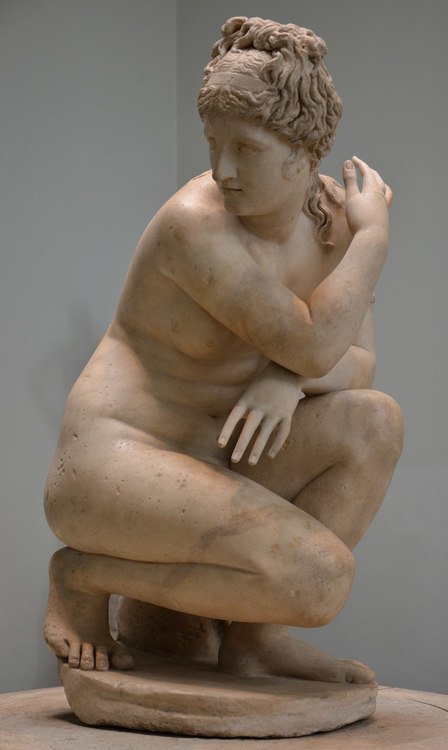
Venus crouching (Roman copy, 2nd century CE)
- programmatic opening: credentials of elegiac praeceptor amoris
Ars Amatoria 1.1-34
Should anyone here not know the art of love,
read this, and learn by reading how to love.
By art the boat’s set gliding, with oar and sail,
by art the chariot’s swift: love’s ruled by art.
Automedon was skilled with Achilles’s chariot reins,
Tiphys in Thessaly was steersman of the Argo, [Iliad, Argonautica]
Venus appointed me as guide to gentle Love:
I’ll be known as Love’s Tiphys, and Automedon.
It’s true Love’s wild, and one who often flouts me:
but he’s a child of tender years, fit to be ruled.
Chiron made the young Achilles perfect at the lyre,
and tempered his wild spirits through peaceful art.
He, who so terrified his enemies and friends,
they say he greatly feared the aged Centaur.
That hand that Hector was destined to know
was held out, at his master’s orders, to be flogged.
I am Love’s teacher as Chiron was Achilles’s,
both wild boys, both children of a goddess.
Yet the bullock’s neck is bowed beneath the yoke,
and the spirited horse’s teeth worn by the bit.
And Love will yield to me, though with his bow
he wounds my heart, shakes at me his burning torch.
The more he pierces me, the more violently he burns me,
so much the fitter am I to avenge the wounds. [cf. Amores 1.1]
Nor will I falsely say you gave me the art, Apollo, [recusatio]
no voice from a heavenly bird gives me advice,
I never caught sight of Clio or Clio's sisters
while herding flocks, Ascra, in your valleys: [Boeotia; Hesiod]
Experience prompts this work: listen to the expert poet:
I sing true: Venus, help my venture!
Far away from here, you badges of modesty,
the thin headband, the ankle-covering dress. [matronae]
I sing of safe love, permissible intrigue,
and there'll be nothing sinful in my song. [disclaimer – Augustan adultery legislation]
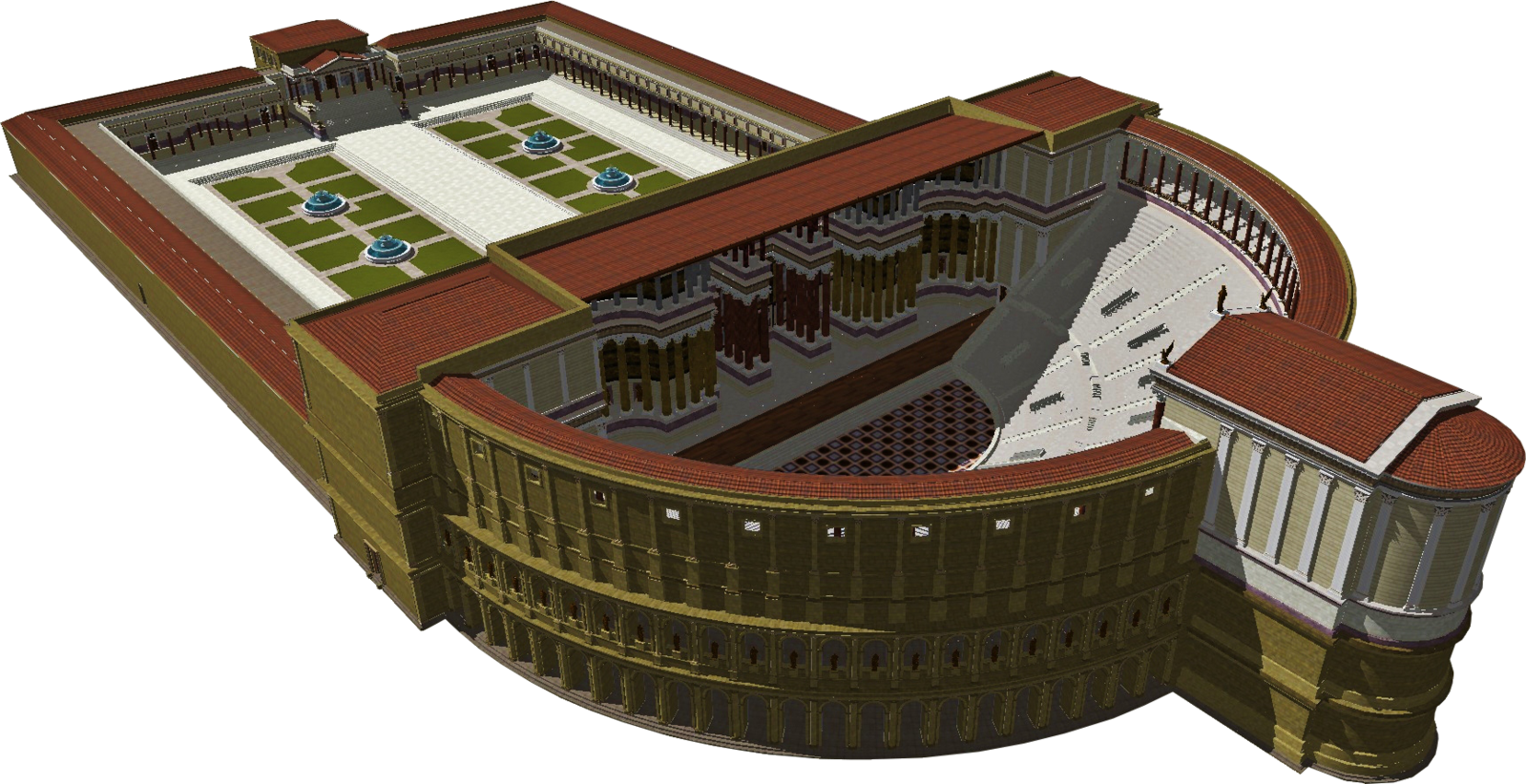
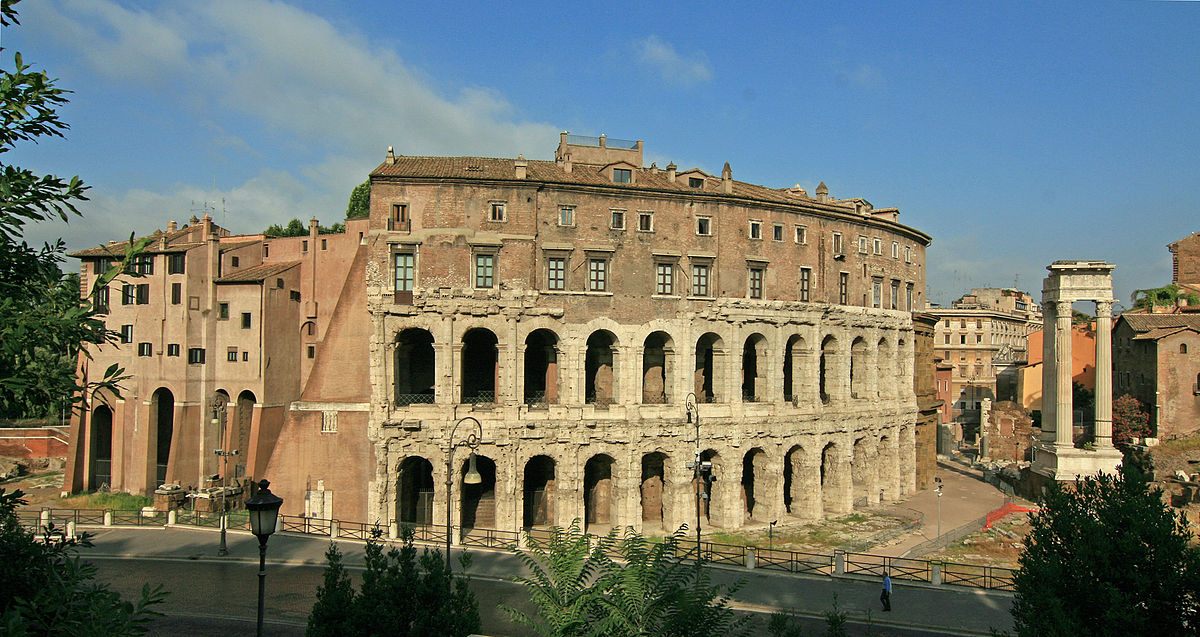
L: Theater of Pompey (55 BCE); R: Theater of Marcellus (13 BCE)
- opening topic: where (1.1-262) Love's "raw recruits" (1.36) can hook-up ("hunt", 1.45ff.) in Rome, i.e. public spaces of Augustan cityscape (theaters & porticoes, circuses, triumphal processions) + dinner parties & beach resorts (elites); how & making lasting relationships in book 2 (also for males); instructions for women (book 3), e.g. faking orgasms (3.769-808)
Art of Love 1.67-74 (first public locations named associated with emperor)
Just walk slowly under Pompey’s shady colonnade,
when the sun’s in Leo, on the back of Hercules’s lion:
or where Octavia added to her dead son Marcellus’s gifts, [Aeneid 6.854ff.]
with those rich works of foreign marble. [portico, Theater of Marcellus]
Don’t miss the Portico that takes its name
from Livia its creator, full of old masters: [Esquiline Hill (Augustus, 7 BCE)]
or where the daring Danaids prepare to murder their poor husbands,
and their fierce father stands, with out-stretched sword. [statues in portico, Temple of Palatine Apollo (Augustus, 36 BCE)]
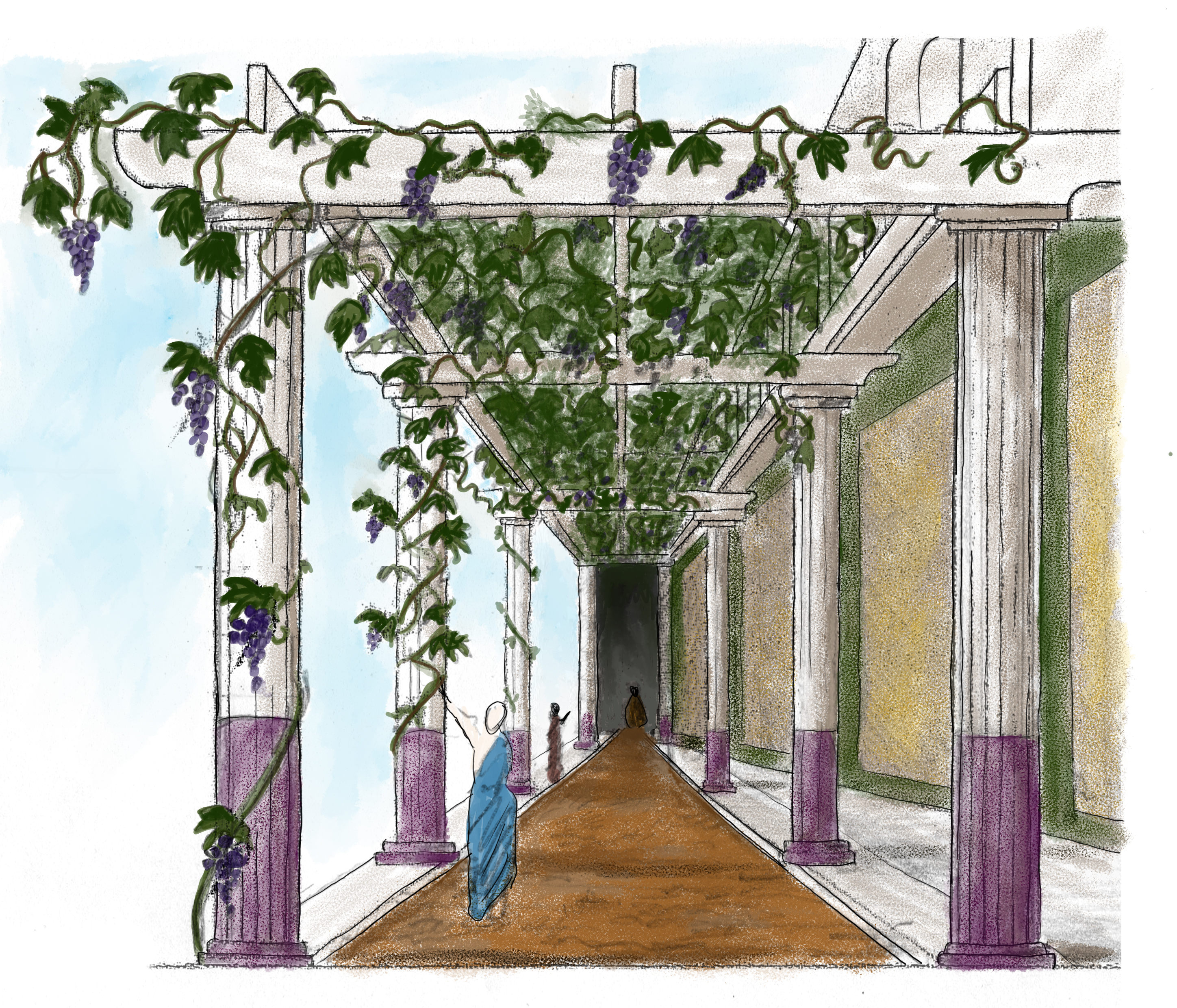
- public spectacles (theater, chariot races, etc.)
Art of Love 1.89-100 (quasi-epic but elegiac pursuits at the theater)
There you’ll find one to love, or one you can play with,
one to be with just once, or one you might wish to keep.
As ants return home often in long processions,
carrying their favourite food in their mouths,
or as the bees buzz through the flowers and thyme,
among their pastures and fragrant chosen meadows,
so our fashionable ladies crowd to the famous shows:
my choice is often constrained by such richness.
They come to see, they come to be seen as well:
the place is fatal to chaste modesty.
[precedent of Rape of Sabine women at games follows
(753 BCE), "From that I suppose came the theatres’ usual customs: now too they remain a snare for the beautiful", 1.133-4]
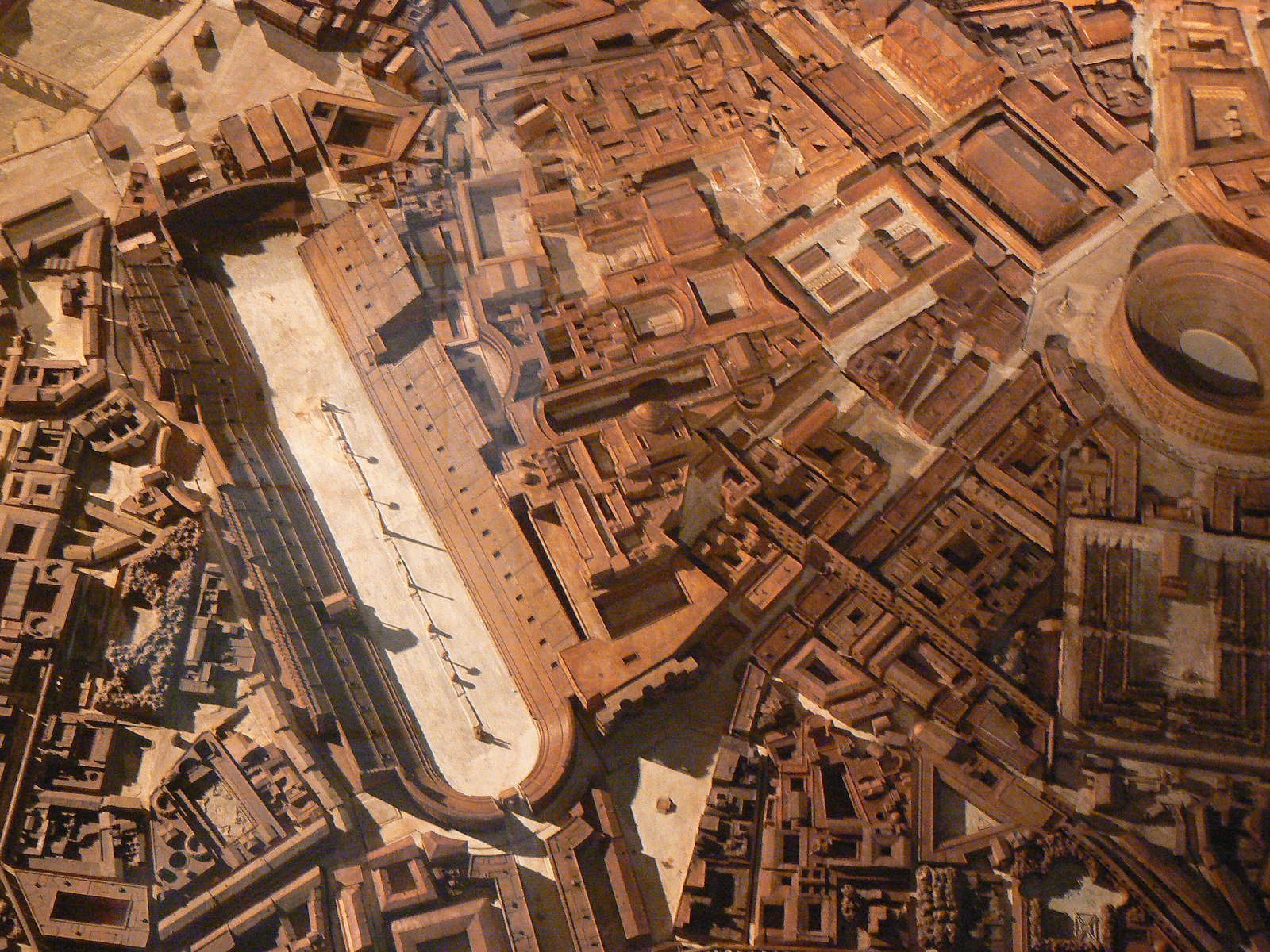
3D reconstruction of Circus Maximus
- Love-Doctor at circus: parades of gods' statues, horses & bets, conversation & forced proximity, "You can sit by your lady: nothing’s forbidden, / press your thigh to hers, as you can do, all the time: / and it’s good the rows force you close, even if you don’t like it, / since the girl is touched through the rules of the place" (1.139-42); prostitutes & low-status women not specified
Art of Love 1.171-9 (naumachia of Augustus)
When, lately, Caesar, in mock naval battle,
exhibited the Greek and Persian fleets, [Battle of Salamis, 480 BCE]
surely young men and girls came from either coast,
and all the peoples of the world were in the City? [Temple of Mars dedication, 2 BCE]
Who did not find one he might love in that crowd?
Ah, how many were tortured by an alien love!
- triumphal processions (forecast of Parthian expedition led by Augustus' young grandson/adopted son Gaius Caesar): opportunity to impress object of desire (vs. civic occasion – Crassus' standards, 53 BCE)
Art of Love 1.219-28 (imagined Parthian triumph)
And if she, among them, asks the name of a king,
what place, what mountains, and what stream’s displayed,
you can reply to all, and more if she asks:
and what you don’t know, reply as memory prompts.
That’s Euphrates, his brow crowned with reeds:
that’ll be Tigris with the long green hair.
I make those Armenians, that’s Persia’s Danaan crown:
that was a town in the hills of Achaemenia.
Him and him, they’re generals: and say what names they have,
if you can, the true ones, if not the most fitting.

Poster for Purcell's opera, Dido and Aeneas (Vancouver 2015)
Heroides (uncertain date, pre-exile poetry: cf. Amores 2.18.21ff.): rhetorical & poetic letters of betrayed or abandoned heroines (ethopoeia, "speech in character", e.g. Penelope to Odysseus, Ariadne to Theseus); innovative (Ovid claims originality, Art of Love 3.345-6)
- Heroides 7: Ovid's critical & competitive reception of Aeneid 4 – continuation of Dido's arguments against Aeneas' leaving Carthage (post-debate at Aeneid 4.296ff., before suicide, "I write, and a Trojan sword lies in my lap", 7.184)
- (more) elegiac Dido trying to persuade beloved?
Heroides 7.22-36 (Dido's conflicted passion; cf. Catullus 85, odi et amo)
. . . where would you find a wife, to love you like this?
I am scorched like wax torches dipped in sulphur,
like holy incense added to smoking pyres.
My sleepless eyes cling, always, to Aeneas:
I’ve Aeneas in my mind day and night.
It’s true that he’s ungrateful, and silent about my gifts,
and if I weren’t a fool, I’d wish to be free. [servitium amoris]
Yet I don’t hate Aeneas, though he might think badly of me.
Venus, spare your daughter-in-law, and Love, my brother,
embrace your hard-hearted brother: let him serve in your ranks, [militia amoris]
so I, who began this love – I don’t scorn indeed to say this –
might offer him the substance of my affections.
I’m cheated and this is a false idea I speak of:
he differs from his mother in disposition. [cf. "no goddess was your mother!", Aeneid 4.365]
- expanded, corrective and/or critical readings & rewritings of Vergil
Heroides 7.81-6 (on Aeneas' Troy narrative, Aeneid 2)
You lied about it all: for your lying tongue did not
start with me, nor am I the first one to be punished:
if you ask where Creusa is, the lovely mother of Iulus –
she died alone, abandoned by a hard-hearted husband!
You told me this, but in winning me you suppressed it.
From that minor fault, came my future punishment.
Heroides 7.63-72 (on leaving in bad weather & wish for Aeneas' death at sea, Aeneid 4.310-11, 382-7)
Live, I beg you! Thus I’d curse you more harshly than if you died,
you’d be more widely known as the cause of my death.
Come, imagine, if you were snatched up by a swift whirlwind –
let there be no weight to that omen – what would be in your mind?
Immediately the perjury of your false tongue will strike you
and Dido, forced to die by Phrygian deceit:
the image of the wife you cheated would stand before your eyes,
in sorrow, and with loosened bloodstained hair.
However many times you say: ‘Forgive me, I deserved it all!’
you’ll find each one a thunderbolt falling on you!
Heroides 7.93-6 (on nymphs' ululations in cave scene, Aeneid 4.167-8)
That day harmed me, when a sudden dark rainstorm
forced us to shelter under the roof of a cave.
I heard a voice: I thought it the nymphs’ wailing:
it was the Furies giving warning of my fate.
Heroides 7.139-42 (on the divine mission; cf. Dido's "As if the gods lose sleep or worry over this!", Aeneid 4. 379)
'But the god orders me to go.' I wish he had prevented your
coming to Carthage, its earth from being touched by a Trojan.
Led by this god, are you not driven by adverse winds,
and endlessly scoured by ravening seas?
- floats possibility she's pregnant: cf. Dido's wish, Aeneid 4.327-30
Heroides 7.133-8 (further guilt for Aeneas?)
Wicked man, you abandon both pregnant Dido [foristan, "Perhaps . . ."]
and that part of you hidden enclosed by my body.
You add the infant’s death to the unhappy mother’s,
and you’ll be author of the funeral of your unborn child.
Iulus’s brother will die with his mother,
and one punishment will destroy the two of us.
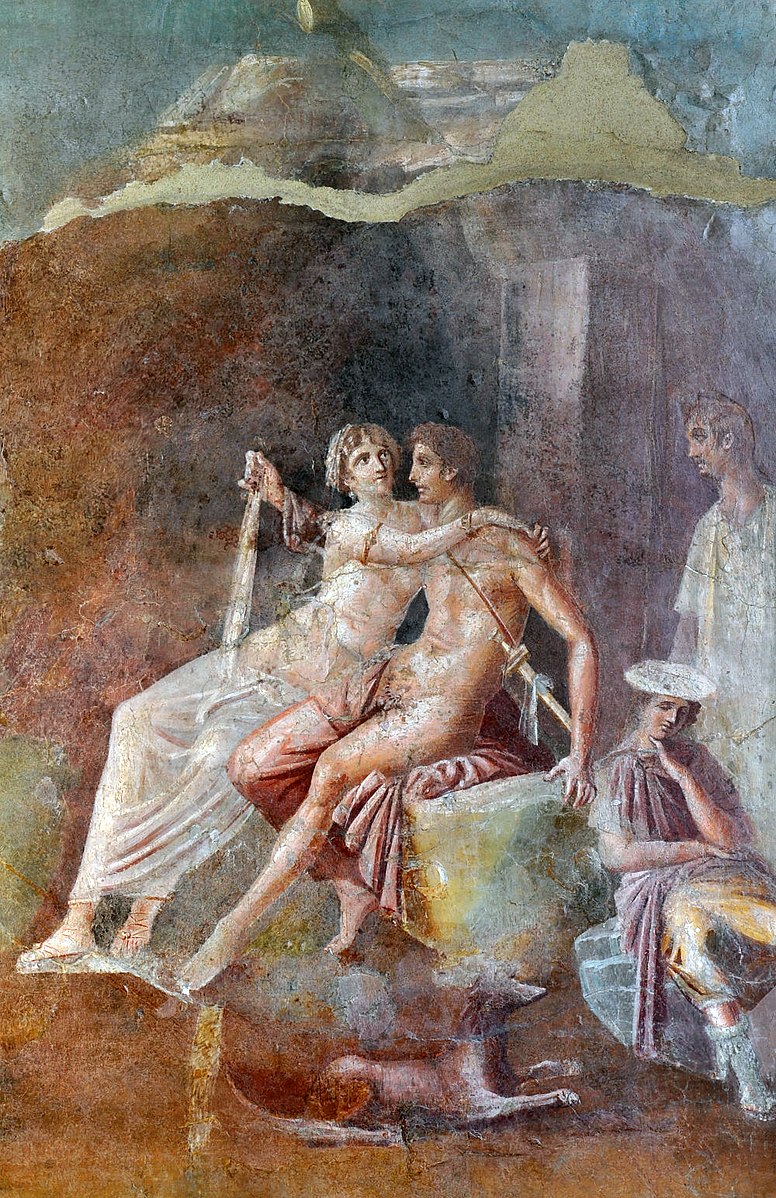
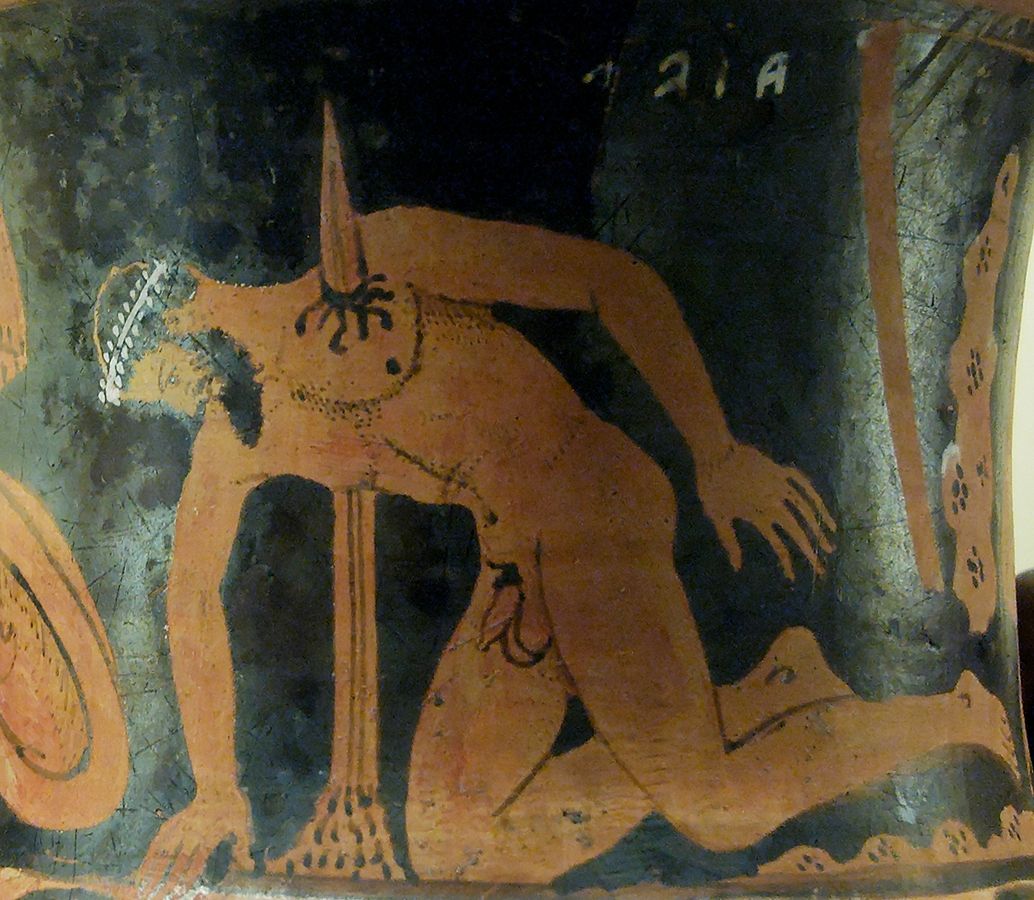
L: Dido and Aeneas fresco (Pompeii, 1st century CE); R: Suicide of Ajax ( Etrurian calyx-krater, ca. 400-350 BCE)
- Dido's death: proud heroic & tragic figure (Ajax) and rejected elegiac lover?
Heroides 7.193-6 (final instructions to Anna for epitaph)
Do not write ‘Sychaeus’s Elissa’, when I’m consumed by fire, [univira]
let this verse, alone, appear on my marble tomb: [carmen, i.e. final elegiac couplet]
‘Aeneas offered a reason to die, and the sword.
Dido killed herself by her own hand.’ [cf. "did I cause your death?", Aeneid 6.458]

Pelicans on the Danube River (Romania)
Australian poet David Malouf's novella, An Imaginary Life (1978)
Tristia ("Sorrows", 5 books, 9-12 CE; book 2 a single long poem appealing for emperor's pardon): learned (e.g. Tomis deprived of myth – Hero & Leander, Acontius & Cydippe, etc.) exile poetry
- Tomis as hostile & insecure anti-Rome ("blessed that man / who's not forbidden, and can enjoy, the city!", 3.12.25-6) year-round – physically & psychologically hostile landscape, "This then, though the great world stretches wide, / is the place invented for my punishment!" (3.10.77-8)
Tristia 3.10.19-24 (winter in Tomis)
Men keep out the dreadful cold with sewn trousers
and furs: the face alone appears of the whole body.
Often their hair tinkles with hanging icicles,
and their beards gleam white with a coat of frost.
Wine stands exposed, holding the shape of the jar,
and they drink draughts of mead, but frozen lumps.
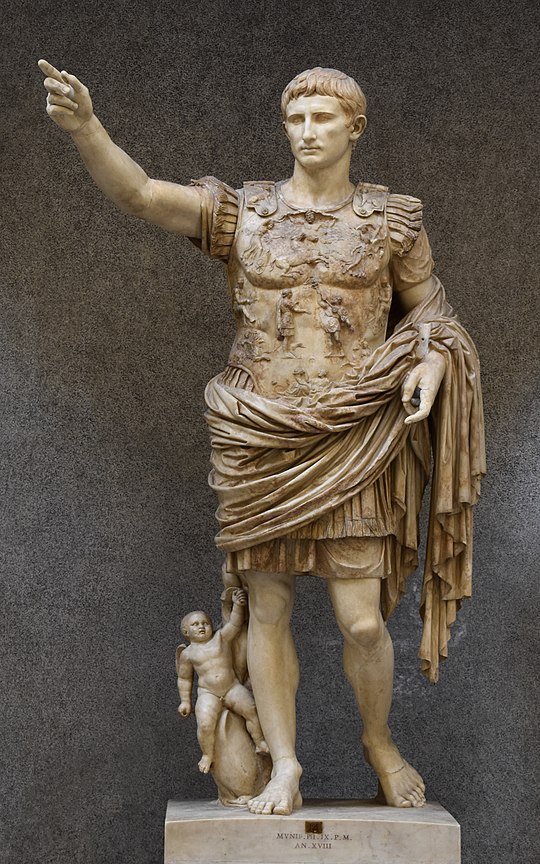
- pathos of exile's slim hopes, prospect of clementia in spring (vs. Italy's blooming vines, social activity in Roman forums & theaters, etc., 3.10.55ff.)
Tristia 3.12.31-54 (spring in Tomis)
Ships will be starting to make their voyage here,
and there’ll be friendly prows on the Pontic shore.
I’ll go eagerly to meet the captain, and greet him:
I’ll ask why he comes, who he is and from where.
It’ll be strange if he’s not from a neighbouring place,
one who’s not safely ploughed the local waters.
It’s rare for sailors to cross the deep sea fom Italy,
rare for them to come to this harbourless coast.
Yet if he knows how to speak in Greek or Latin
– and for sure the latter tongue would be more welcome –
possibly someone too who’s sailed with a steady southerly
from far Propontis, and the mouth of the straits,
whoever he is he can recount the news he knows,
and be the sharer and passer-on of rumour.
I hope he can tell what he’s heard of Caesar’s triumphs,
of prayers made to our Roman Jupiter, and that you
rebellious Germany, at last, have bowed
your sorrowful head beneath the general’s foot.
He who tells me things, I’m sad I haven’t seen,
will be an instant guest in my house.
Ah, is Ovid’s house, now, in the Scythian world?
Does my sentence assign the land it specified as Home?
Gods, let Caesar not will my hearth and home here,
but only a temporary lodging as a punishment.











